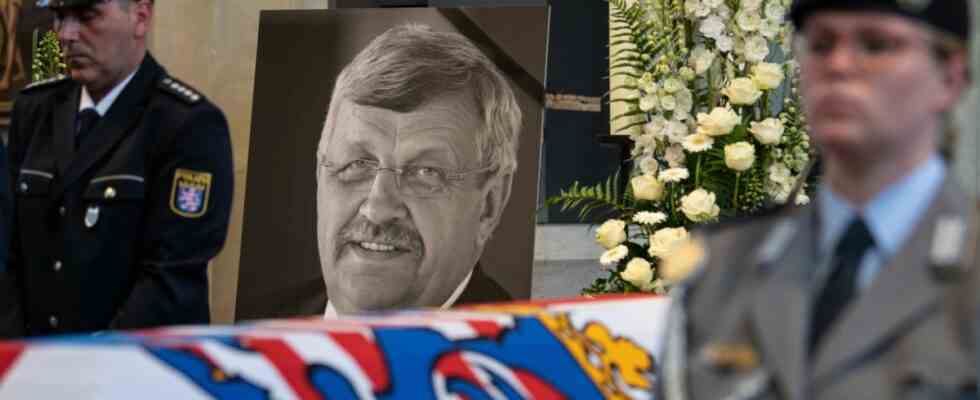He was a democrat, CDU politician, reserve officer, patriot – and the target of a right-wing terrorist who murdered Walter Lübcke on June 1, 2019 on his terrace with a headshot. After the ten murders by the NSU trio, to whose environment the perpetrator Stephan Ernst was in contact, this neo-Nazi attack shocked the public again. After Ernst’s arrest, Ferdos Forudastan, head of the SZ domestic policy department, saw that the state and society were still underestimating the danger from the right – and thereby making it even greater.
Yes, it will take a while before the circumstances of Walter Lübcke’s murder are clarified. The investigators will still need time to find out whether the urgent suspect Stephan E. actually shot the Kassel district president, whether he had accomplices, whether a right-wing extremist network was behind the crime. However, if it becomes a certainty, which must be considered very likely today, then the Lübcke case is further bitter evidence that this country has a massive problem with right-wing extremism. And he throws a glaring light on the circumstances that favor him.
There is, of course, the fact that authorities have underestimated the danger from the right for far too long. For decades, the police and secret services first looked extremely sharply at the violent part of the left and later also at Islamists. Right-wing extremism was targeted much less frequently and much more fleetingly. The blind spot allowed the NSU to murder unhindered. He made it easier for racists to harass people with foreign roots. And he may also have encouraged Stephan E. to kill a politician who had campaigned for the generous reception of refugees.
Of course, it would be far too easy for oneself to look only at how the actions and omissions of the security authorities affect right-wing extremists. The climate in which hatred and militancy thrive depends not only on how the police and secret services operate. It is also shaped by how politics and society discuss things; whether they fight fiercely but fairly for their points of view, or whether they lapse into abuse, yes, hate speech.
What was written about Walter Lübcke before and after his death, especially online, was often exactly that: abuse and hate speech of the worst kind. They were words that at least confirmed, if not motivated, the suspected murderer of the district president. Words that must not remain without consequences, whose authors must, as far as possible, be identified and held accountable.
Everyone is responsible for the social climate
It is good that many politicians are now also sharply condemning the brutalized discourse. Of course, everyone is responsible for the mood in the country – and politicians insofar as they are role models in their choice of words, both positively and negatively. They have to weigh their words very carefully – especially when it comes to asylum and migration. Needless to say that to AfD politicians, whose business model is agitation. But as far as the Democrats are concerned: Please never again talk about the “rule of injustice” with regard to the situation at the borders or about wanting to fight illegal migration “to the last cartridge”, as CSU man Horst Seehofer once said did. Please never again talk about “loss of control” in connection with refugees, as his party friend Markus Söder once did.
January 12th, 2021: Frankfurt/Main: The main defendant Stephan Ernst (2nd from left) stands between his lawyers in the Higher Regional Court. On January 28, 2021, the right-wing terrorist was sentenced to life imprisonment for the murder of Walter Lübcke.
(Photo: Thomas Lohnes/dpa)
There are citizens who take literally what is sometimes only said in order to gain interpretative sovereignty or at least the attention of the media or the party in a professional dispute. There are users in the digital networks who feel all the more fired up by this: If politician X makes a mistake in his choice of words, then I can do it too. And not to speak of those who lack decency, morals or democratic sentiment anyway. They all then flood the network. And no one should be surprised that no network enforcement law and no deletion department at Twitter and Facebook can keep up with all the poisonous sentences.
That has to be one of the lessons of this act: it doesn’t come out of nowhere. It thrives in a climate. All those who tweet under pseudonyms are responsible for this climate. But not only her.

